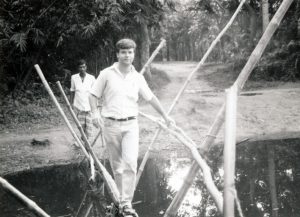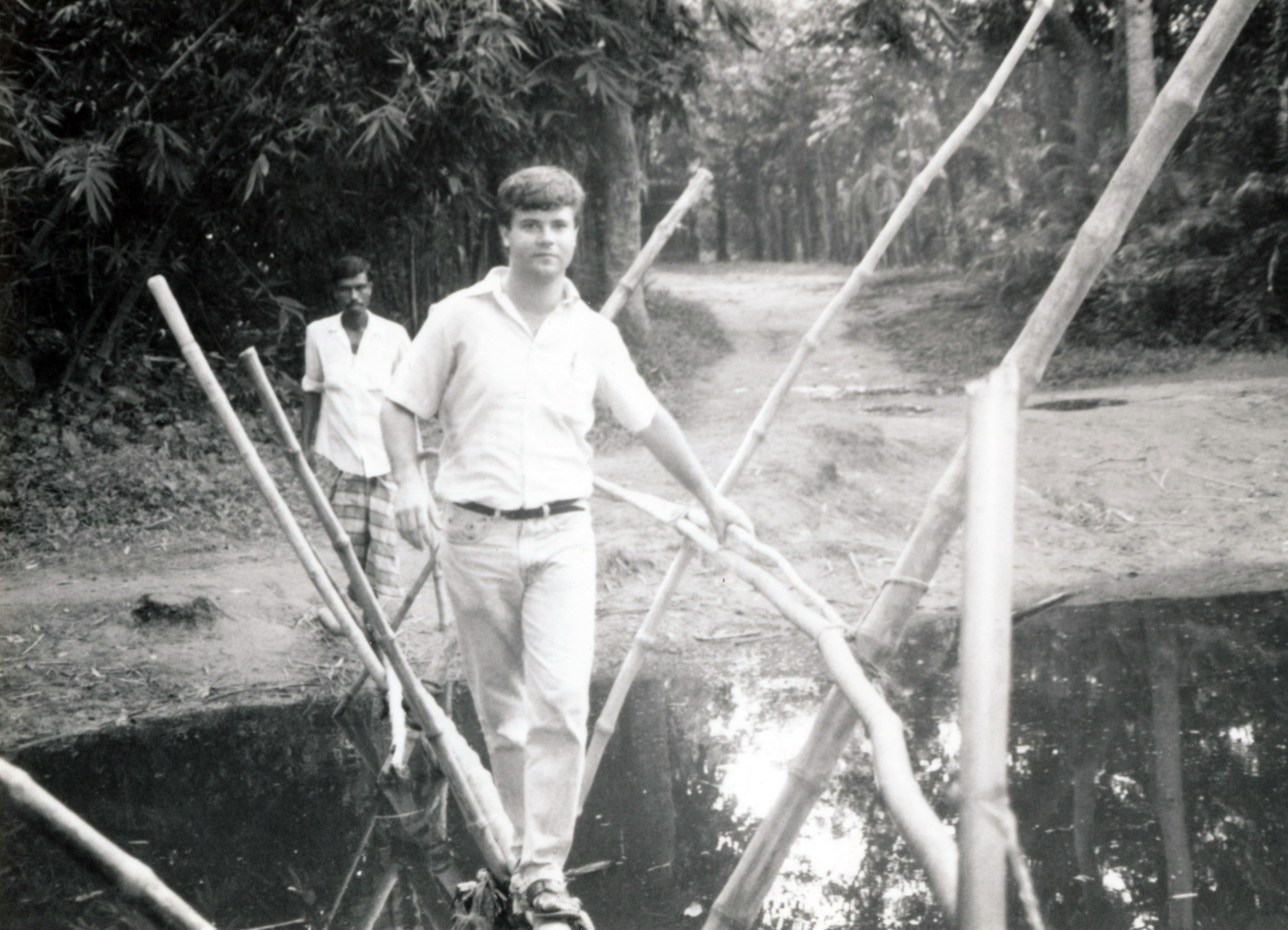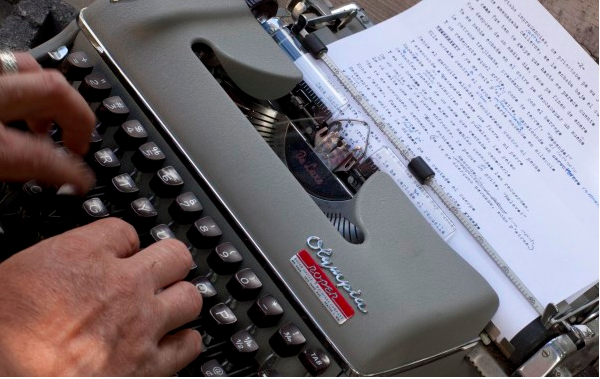
Alex Counts, 1988-1989, Bangladesh, crossing a bamboo bridge at the time of the 1989 monsoon during his Fulbright year
From my earliest days contemplating my responsibilities as a global citizen, I have believed that entrepreneurship, and in particular social entrepreneurship, had major roles to play in realizing a better world. For this reason, I was attracted to the idea of microfinance and one of its earliest and most successful examples: the Grameen Bank of Bangladesh. This innovative financial institution, which served and was owned by this nation’s poor women, was both an entrepreneurial venture itself that made a modest profit most years, but was also an engine of spurring micro-entrepreneurship on a massive scale through the hundreds of millions of business loans it has provided.
Indeed, I have come to believe that one of the surest paths to sustainable and large-scale social change is to incorporate the discipline of the private sector into empowerment strategies. The Grameen Bank and, later, its affiliated companies, was a shining example of this. During my studies at Cornell, I began a correspondence with Professor Muhammad Yunus, Grameen’s founder, about how I could join forces with him to promote his success model at the international level. He welcomed me to come to Bangladesh after graduation to begin our collaboration.
But many questions remained about how I would do this. I needed to learn the language. Thankfully, Cornell was one of only five universities at the time that taught Bengali as a for-credit course. Convincing my family that this made sense took some time. Then, there was the matter of funding my first year in Bangladesh and securing my visa.
This is where the Fulbright U.S. Student Program came in. One of my mentors on the Cornell faculty suggested I apply. It was only days before the deadline, but I pulled everything together just in time. I learned in January that I was not selected, but was instead put on a waiting list – and I cleared the list in June, when additional funds were made available to the Fulbright Program by Congress.
I went on to spend not one, but six years in Bangladesh (not all on my Fulbright grant), and have been working with Professor Yunus and his team for 27 years, and counting. (Though since January 2016, my role has been purely voluntary, as I retired as CEO of Grameen Foundation, which I established with Dr. Yunus’ help in 1997. In March, I took over as the CEO of the American India Foundation, which promotes poverty alleviation in India and civil society collaboration between the United States and India.)
Entrepreneurs need specialized support, and it is this kind of support that the Fulbright staff specialize in. Entrepreneurs, including social entrepreneurs, need support with handling the details of their operations, without unnecessary bureaucracy or interference. As a Fulbright Student, the teams in New York and Dhaka were incredibly service-oriented towards me. They handled everything that they could to make my time in Bangladesh productive, and they did not impose anything on me that was not absolutely necessary. In fact, the most significant assignment I was asked to undertake unrelated to my core project was to provide written feedback to the Fulbright Program about how it could have served me better. (As far as I can recall, I wrote that they did a terrific job and I could have asked nothing more of them!) That such seasoned professionals were committed to helping me increased my self-confidence.
Professor Yunus himself is not only a Nobel laureate, but also a Fulbrighter who came to the United States in 1965. His contributions to the social entrepreneurship movement have been massive, and historic. When I sat among 1,000 well-wishers as he accepted the Nobel Peace Prize in Oslo in 2006, many things flashed through my mind. One of them was the unique and essential contributions the Fulbright Program made to him, and to me, and to the practice and impact of social entrepreneurship around the world. How many people’s ambitions of what can be done have been tickled and amplified based on what Dr. Yunus and his team have accomplished? It is impossible to know, but the number is not small.



No Comments